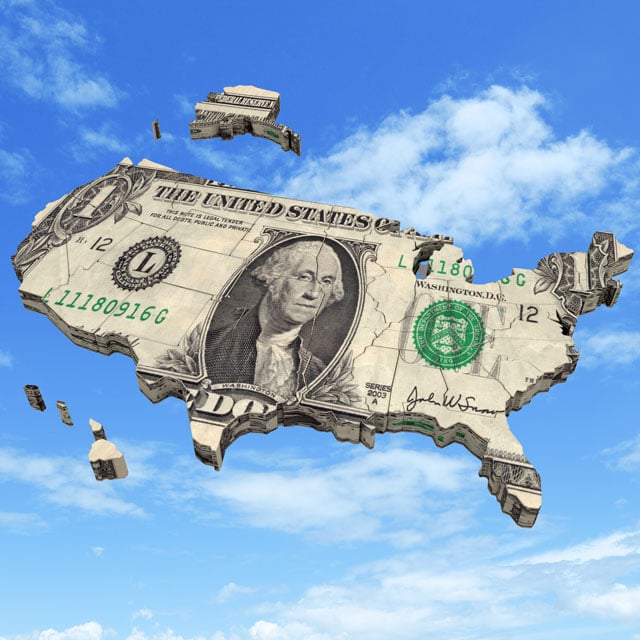Career Moves November 27, 2023 at 09:49 AM
In honor of Veterans Day and National Veterans and Military Families Month, we're pleased to present ThinkAdvisor's 12th annual Advisors Who Serve(d) compilation, in which we highlight stories of veterans in the advisory world, told in their own words.

Michael Ball
Title/company: Financial Advisor / Edward JonesBranch: U.S. Navy
Rank held at beginning of service and at end: Ensign / LT Commander
Service dates: 1999 – 2019
Work you did: Surface warfare and retired out of U.S. Special Operations Command
Brief story that stands out from your service time: There is nothing better than returning from deployment with everyone safe and sound. A highlight was always seeing the new fathers who were meeting their little ones for the very first time and all those who were reunited with families after being deployed to the combat zone. No matter if it was my first deployment or my last, the feelings were always the same, with the same intensity of love, joy, and comradeship.

Chuck Carrick
Title/company: Managing Director / Beacon Pointe PartnerBranch: U.S. Army
Rank held at beginning of service and at end: Private E-1 / E-5 in the National Guard, upon later graduating from college and achieving 2nd Lieutenant status
Service dates: 1977 – 1981 Regular Army, 1981 - 1984 National Guard and Reserves
Work you did: 3rd U.S. Infantry Regiment (The Old Guard) Ft Myers, Virginia, spending 2 years as a Sentinel at the Tomb of the Unknown Soldier
Brief story that stands out from your service time: I was fortunate to serve in a time of peace, however many of the leaders I served under were Viet Nam veterans. They taught me about dedication, honor, sacrifice, and teamwork. These soldiers helped to ensure that we truly understood the incredible honor we had to be sentinels at the Tomb of the Unknown Soldier. A place where families from across the country came to connect and honor those who sacrificed everything so that we could enjoy our freedoms.

David Chepauskas
Title/company: Senior Wealth Management Adviser / Summit Financial, LLCBranch: Field Artillery branch
Rank held at beginning of service and at end: 2nd Lieutenant / Major
Service dates: 1977 – 1990
Work you did: I graduated from the US Military Academy at West Point in 1977, as a Second Lieutenant choosing to enter the Field Artillery branch. After attending officers' basic artillery course (OBC) in Fort Sill Oklahoma, I was stationed with the 101st Airborne Division in Fort Campbell Kentucky for five years.
Brief story that stands out from your service time: I commanded a field artillery firing battery for two of those years as a first lieutenant. After completing the field artillery officers advanced course (again at Ft Sill), I had the privilege of commanding the largest artillery battery in the US Army, stationed in Berlin, Germany.
This was a unique assignment, living in a walled in city over 100 miles inside a communist country (which most Americans did not realize), during the Cold War. The city of Berlin was surrounded by multiple Soviet Divisions, and we had a single Brigade; we were outnumbered many times over. Interestingly, we were able to travel through Checkpoint Charlie into East Berlin.
I often say that seeing a communist country in 1990 during the Cold War was perhaps the best advertisement for capitalism one could imagine. Crossing through Checkpoint Charlie from West Berlin, a bustling metropolis like Manhattan or Paris, into East Berlin, was like walking into a black and white movie from the early 1900s. The city buildings still had not repaired many of the bullet holes 45 years after World War II ended. The seeming attraction of an 11 to 1 currency exchange rate would presumably enable a 28-year-old to purchase things we normally couldn't afford on a Captain's salary. To our surprise, it apparently didn't matter how much money we had available; there was virtually nothing to be purchased. The department store front windows would display fine German crystal and dishware, collectibles, cameras, etc. But when we went inside to purchase, we found that they were only there for show; nothing was actually available for purchase. People would wait patiently on long lines to buy rotten fruit. Shabbily dressed citizens drove East German-made vehicles which seemed too small to fit into. The primary source of heat was coal, giving one a headache from the fumes by the end of the day.
Upon completion of my German tour, I was accepted to teach on the West Point faculty, so I was sent for a master's degree at the University of Georgia. As a faculty member at West Point, I attended night classes for a second master's degree in business. It was there that I took a finance course, deciding that I wanted to make a career in finance.






